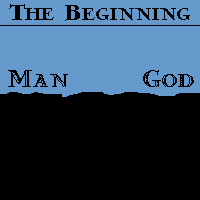The dictionary defines “urban legend” as “an apocryphal, secondhand story told as true, plausible enough to be believed, and likely to be framed as a cautionary tale, about some horrific, embarrassing, ironic, or exasperating series of events that supposedly happened to a real person.” That’s quite a mouthful but simply stated, an urban legend can mean a story or an idea that is widely believed but which lacks any factual basis.
Here in the Philippines, certain ideas about marriage and separation of spouses have achieved the status of urban legends. These are:
[1] If husband and wife have not seen each other for more than seven years, their marriage is already void.
[2] A husband and wife can declare in a notarized document that they are free to marry other persons and they will not file charges against each other.
I have previously discussed how seriously mistaken these ideas are in two articles in my Legal Updates blog. I am surprised by how widely believed these things are among Filipinos and so I am reprinting both articles in this post. Okay, here we go!
If husband and wife have not seen each other for more than seven years, does it mean that their marriage is already void?
It is not accurate to say that if spouses have not seen or communicated with each other for more than seven years that the marriage is terminated automatically or is considered void. In situations where one spouse has not seen for a number of years or does not know what has happened to the other spouse, he or she must file a petition asking the court to declare the missing spouse as presumptively dead for purposes of remarriage.
The Family Code, specifically Articles 41 to 44, deals with the declaration of presumptive death for purposes of remarriage. There are a lot of misconceptions however about this part of the Family Code. Please let me explain.
[1] Article 40 provides that persons cannot take the law into their own hands and simply declare by themselves that their marriage is null and void. A person wanting to remarry must first obtain a court decision declaring the previous marriage null and void before getting married again.
[2] The Family Code only provides for a period of two years (extraordinary absence like in war, shipwreck, storm, etc) or four years (ordinary absence) for a person to be able to go to court and file a petition for declaration of presumptive death of the missing spouse. The seven years separation that people usually refer to was previously provided for by the New Civil Code.
[3] The court will however require the petitioner to present proof that he or she exerted earnest and diligent efforts to locate the whereabouts of the missing spouse. These efforts include asking the police or NBI for help in locating the missing spouse, using the media like newspapers or radio, etc. The court will deny the petition if the petitioner cannot present such evidence of earnest and diligent efforts to locate the missing spouse.
[4] If the court declares the missing spouse as presumptively dead, then the petitioner will be able to remarry.
[5] But the problem is if any person (friend, relative, barangay official, etc) discovers that the missing spouse is really alive, then that person can file an affidavit of reappearance with the Local Civil Registrar. If the petitioner had already gotten married, then that subsequent marriage is automatically terminated. This is provided for by Article 42 of the FC.
Posted below are the specific provisions of the Family Code on this matter:
Art. 40. The absolute nullity of a previous marriage may be invoked for purposes of remarriage on the basis solely of a final judgment declaring such previous marriage void. (n)
Art. 41. A marriage contracted by any person during subsistence of a previous marriage shall be null and void, unless before the celebration of the subsequent marriage, the prior spouse had been absent for four consecutive years and the spouse present has a well-founded belief that the absent spouse was already dead. In case of disappearance where there is danger of death under the circumstances set forth in the provisions of Article 391 of the Civil Code, an absence of only two years shall be sufficient.
For the purpose of contracting the subsequent marriage under the preceding paragraph the spouse present must institute a summary proceeding as provided in this Code for the declaration of presumptive death of the absentee, without prejudice to the effect of reappearance of the absent spouse. (83a)
Art. 42. The subsequent marriage referred to in the preceding Article shall be automatically terminated by the recording of the affidavit of reappearance of the absent spouse, unless there is a judgment annulling the previous marriage or declaring it void ab initio.Can a husband and wife in a notarized document declare that they are free to marry other persons and they will not file charges against each other?
A sworn statement of the fact and circumstances of reappearance shall be recorded in the civil registry of the residence of the parties to the subsequent marriage at the instance of any interested person, with due notice to the spouses of the subsequent marriage and without prejudice to the fact of reappearance being judicially determined in case such fact is disputed. (n)
Art. 43. The termination of the subsequent marriage referred to in the preceding Article shall produce the following effects:
(1) The children of the subsequent marriage conceived prior to its termination shall be considered legitimate;
(2) The absolute community of property or the conjugal partnership, as the case may be, shall be dissolved and liquidated, but if either spouse contracted said marriage in bad faith, his or her share of the net profits of the community property or conjugal partnership property shall be forfeited in favor of the common children or, if there are none, the children of the guilty spouse by a previous marriage or in default of children, the innocent spouse;
(3) Donations by reason of marriage shall remain valid, except that if the donee contracted the marriage in bad faith, such donations made to said donee are revoked by operation of law;
(4) The innocent spouse may revoke the designation of the other spouse who acted in bad faith as beneficiary in any insurance policy, even if such designation be stipulated as irrevocable; and
(5) The spouse who contracted the subsequent marriage in bad faith shall be disqualified to inherit from the innocent spouse by testate and intestate succession.(n)
Art. 44. If both spouses of the subsequent marriage acted in bad faith, said marriage shall be void ab initio and all donations by reason of marriage and testamentary dispositions made by one in favor of the other are revoked by operation of law. (n)
Several individuals, either personally or by e-mail, have asked me about situations where the husband and wife have decided to call it quits after a long period of physical separation, physical or psychological abuse, or because of the loss of love for each other. Instead of going through the judicial process of having their marriage declared null and void, however, the husband and wife have asked a lawyer-notary public (in some instances, barangay officials or even a judge) to prepare and notarize a document where they have declared that both parties are now free to marry other persons and that they will not file charges of adultery or concubinage against each other. The question I have been asked is, Is this document legally valid?
The Supreme Court has ruled consistently as far back as 1933 (that’s 75 years ago!) in the case of Panganiban vs. Borromeo 58 Phil. 367 that such documents are illegal, immoral and void because they undermine and subvert the institution of marriage. Judges, lawyers and notaries-public who have prepared and signed such documents have been reprimanded severely (in terms of suspension or disbarment) by the Court. And yet, either because of ignorance or misconceptions of the law by the man on the street or by the desire of some lawyers-notaries public to make a fast buck, this kind of agreement and document still seem to be floating around.
Below are excerpts from the 1976 decision of the Supreme Court in the case of “Redentor Albano, complainant, vs. Municipal Judge Patrocinio C. Gapusan of Dumalneg, Ilocos Norte, responden”. In this case, Judge Gapusan (before his appointment to the judiciary) prepared and notarized a document providing for the personal separation of husband and wife and the extrajudicial liquidation of their conjugal partnership. The Supreme Court censured Judge Gapusan for his act of preparing and notarizing such a document.
Redentor Albano in a verified complaint dated August 18, 1975 charged Municipal Judge Patrocinio C. Gapusan of Dumalneg and Adams, Ilocos Norte (1) with incompetence and Ignorance of the law for having prepared and notarized a document providing for the personal separation of husband and wife and the extrajudicial liquidation of their conjugal partnership and (2) with having allegedly influenced Judge Zacarias A. Crispin of the Court of First Instance of Ilocos Norte in deciding two criminal cases.
In 1941 or five years before his appointment to the bench, respondent Gapusan notarized a document for the personal separation of the spouses Valentina Andres and Guillermo Maligta of Barrio 6, Vintar, Ilocos Norte and for the extrajudicial liquidation of their conjugal partnership.
It was stipulated in that document that if either spouse should commit adultery or concubinage, as the case may be, then the other should refrain from filing an action against the other.
Judge Gapusan denied that he drafted the agreement. He explained that the spouses had been separated for a long time when they signed the separation agreement and that the wife had begotten children with her paramour. He said that there was a stipulation in the agreement that the spouses would live together in case of reconciliation. His belief was that the separation agreement forestalled the occurrence of violent incidents between the spouses.
Albano in filing the malpractice charge is in effect asking this Court to take belated disciplinary action against Judge Gapusan as a member of the bar or as a notary. (He was admitted to the bar in 1937).
There is no question that the covenants contained in the said separation agreement are contrary to law, morals and good customs (Biton vs. Momongan, 62 Phil. 7). Those stipulations undermine the institutions of marriage and the family, "Marriage is not a mere contract but an inviolable social institution". "The family is a basic social institution which public policy cherishes and protects." (Arts. 52 and 216, Civil Code). Marriage and the family are the bases of human society throughout the civilized world (Adong vs. Cheong Seng Gee, 43 Phil. 43; Ramirez vs. Gmur, 42 Phil. 855, 864; Goitia vs. Campos Rueda, 35 Phil. 252, 254; Brown vs. Yambao, 102 Phil. 168).
To preserve the institutions of marriage and the family, the law considers as void "any contract for personal separation between husband and wife" and "every extrajudicial agreement, during the marriage, for the dissolution of the conjugal partnership" (Art. 221, Civil Code). Before the new Civil Code, it was held that the extrajudicial dissolution of the conjugal partnership without judicial sanction was void (Quintana vs. Lerma, 24 Phil. 285; De Luna vs. Linatoc, 74 Phil. 15).
A notary should not facilitate the disintegration of a marriage and the family by encouraging the separation of the spouses and extrajudically dissolving the conjugal partnership. Notaries were severely censured by this Court for notarizing documents which subvert the institutions of marriage and the family (Selanova vs. Mendoza, Adm. Matter No. 804-CJ, May 19, 1975, 64 SCRA 69; Miranda vs. Fuentes, Adm. Case No. 241, April 30, 1966, 16 SCRA 802; Biton vs. Momongan, supra,, Panganiban vs. Borromeo, 58 Phil. 367; In re Santiago, 70 Phil. 66; Balinon vs. De Leon, 94 Phil. 277).
Respondent Gapusan as a member of the bar should be censured for having notarized the void separation agreement already mentioned.
(Emphasis by boldfacing supplied)








